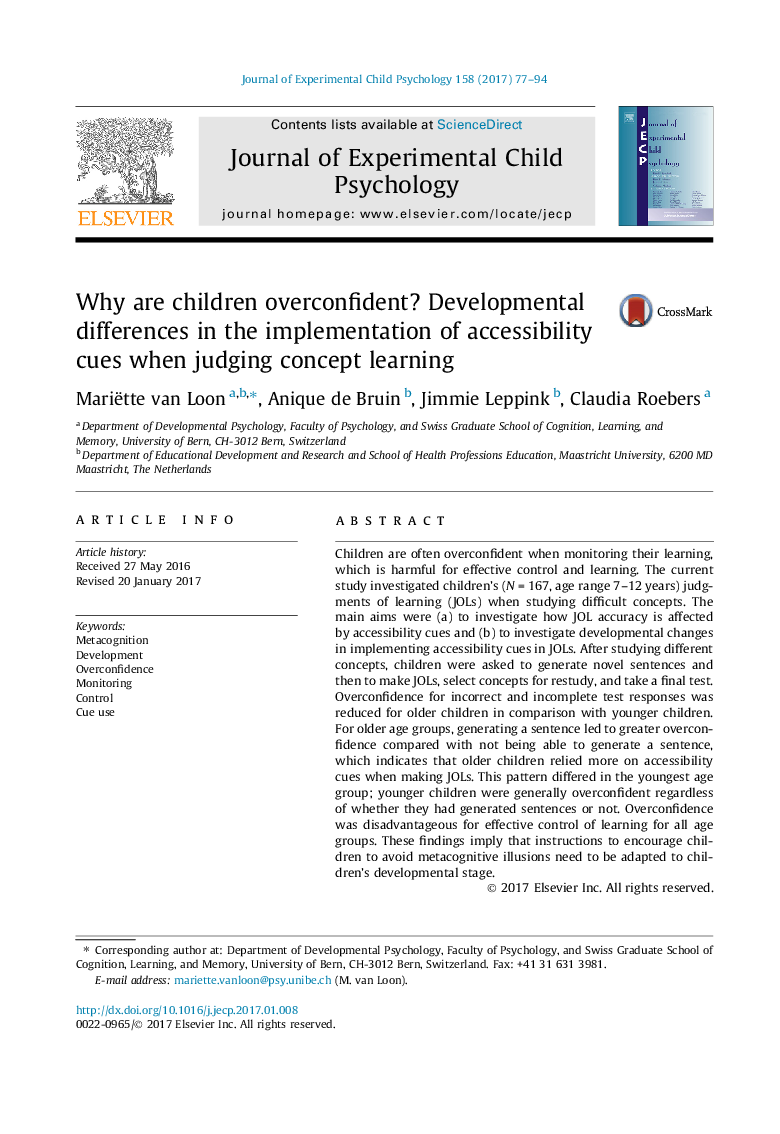ترجمه فارسی عنوان مقاله
چرا فرزندان بیش از حد مصمم هستند؟ تفاوت های توسعه در اجرای نشانه های دسترسی در هنگام قضاوت در مورد یادگیری مفهوم
عنوان انگلیسی
Why are children overconfident? Developmental differences in the implementation of accessibility cues when judging concept learning
| کد مقاله | سال انتشار | تعداد صفحات مقاله انگلیسی |
|---|---|---|
| 120219 | 2017 | 18 صفحه PDF |
منبع

Publisher : Elsevier - Science Direct (الزویر - ساینس دایرکت)
Journal : Journal of Experimental Child Psychology, Volume 158, June 2017, Pages 77-94
ترجمه کلمات کلیدی
فراشناخت، توسعه، بیش از حد اعتماد، نظارت بر، کنترل، استفاده از نشانه
کلمات کلیدی انگلیسی
Metacognition; Development; Overconfidence; Monitoring; Control; Cue use;

